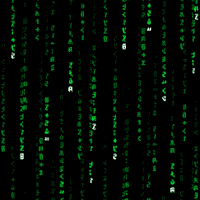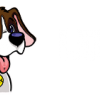Edited by pank12341, 13 February 2014 - 09:41 AM.
What to learn in C?
#1

 Posted 13 February 2014 - 09:40 AM
Posted 13 February 2014 - 09:40 AM

#2

 Posted 13 February 2014 - 02:39 PM
Posted 13 February 2014 - 02:39 PM

Hey there Pank and welcome to Geeks to Go,Hello Friends, I recently started learning C programming.... I have learned basic concepts like using loops,pointers,structures...I have heard that C is Basic every programmer should master in C....But now I am confused what should be my next step....need Help
C is a very nice language to start and learn basic programming logic and flow, although in my personal opinion you will unlikely use C as a practical language now days as you will find it at very low level applications or maybe legacy systems. But generally this language lacks a very important concept which you will find in almost all modern programming languages, object orientation. Besides that there are many other down sides to learning C as a practical language.
Simply put I would definitely recommend moving onto C++, the best thing about it is what you have learnt in C won't have gone to waste as you can code in the exact same manner in C++ with alot of added benefits.
Without writing an exponential list of pros and cons for C++, go out and download it. Then you can start off where you left off, or I recommend as you have done so already by starting again with the basic concepts such as variables, loops, pointers (Wouldn't consider it basic), structures. Then "your next step" I would say is to move onto classes, start off with basic classes and then you can get into concepts such as inheritance and polymorphism (This is where pointers and memory handling become a little more than basic). Also don't forget simple things like error handling and logical flow.
Once you've mastered those concepts you should easily be able to learn a new language or delve further into C++ and maybe try developing a simple 2d/3d game.
I hope I have helped answer your question and as far as I can think right now I have covered the most important concepts. I'm sure along your way you will discover ones that I haven't mentioned and learn new exciting things. Please don't hesitate to post any problems you come across during your journey.
Peace Out
#3

 Posted 14 February 2014 - 09:02 AM
Posted 14 February 2014 - 09:02 AM

#4

 Posted 22 February 2014 - 12:42 PM
Posted 22 February 2014 - 12:42 PM

http://www.cprogramm.../challenge.html
#5

 Posted 22 August 2014 - 09:16 AM
Posted 22 August 2014 - 09:16 AM

And there's really no better place than thenewboston to learn languages.
Edited by Leroydeploy9, 22 August 2014 - 09:17 AM.
#6

 Posted 17 October 2014 - 04:58 AM
Posted 17 October 2014 - 04:58 AM

Similar Topics
0 user(s) are reading this topic
0 members, 0 guests, 0 anonymous users
As Featured On:

















 Sign In
Sign In Create Account
Create Account

